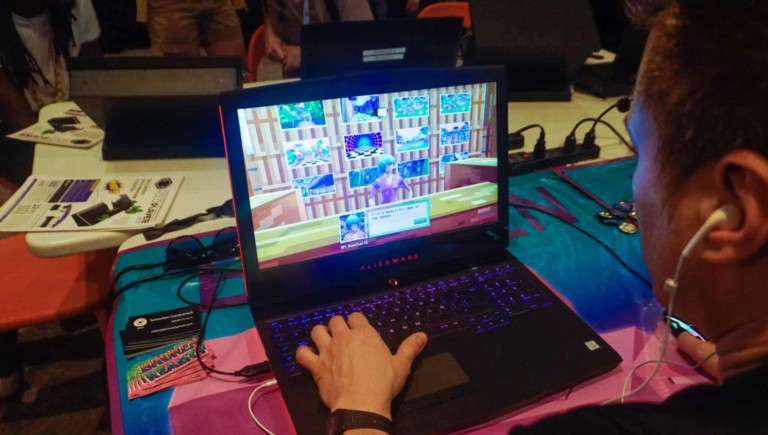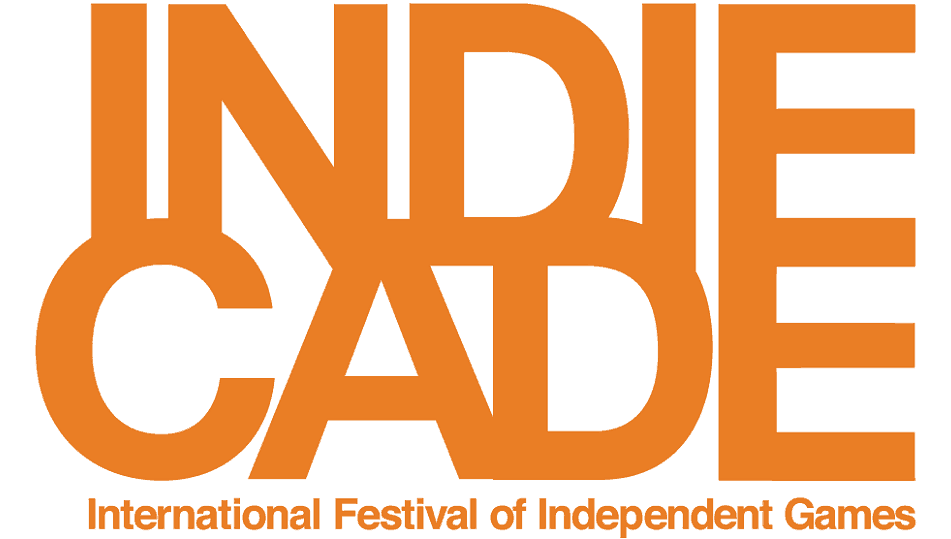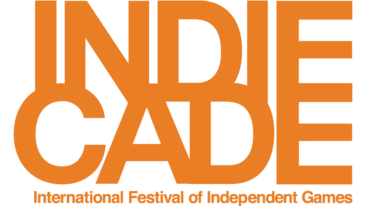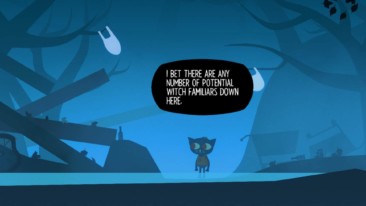
This article is a collaboration between IGR members, especially FictiveTruism, InfinityWaltz and Indie-Game-Freak. Thank you to IndieCade 2017 for access to the event.
IndieCade 2017 – also the festival’s 10th anniversary year – moved into Little Tokyo in downtown Los Angeles this year, and that meant a lot of power-cycling indie games with mochi ice cream and flats of sake tasting. While we ultimately left feeling like this year wasn’t quite as vanguard as previous years, upon reviewing the titles that stood out to us, it is apparent that perhaps all that sake was just going to our heads.

We saw a lot less corporate intrusion this year; Sony, Microsoft and Nintendo were all noticeably absent, and all reps and booths (with the exception of Nestle’s chocolate protein milk) were independents or learning institutions. There were way too many award categories this year, but they went to some very worthy titles that would otherwise never get public attention, and after all, that is what IndieCade – and upon which our own existence here at IGR – is predicated.

So without further ado, here are some of our favorite moments and experiences from IndieCade 2017:
InnerSpace
by PolyKnight Games
InnerSpace is an arcade-style flying game with a heavy focus on exploration. It’s about exploring an environment, finding your way around and collecting items to unlock new areas. One unique feature allows you to seamlessly dive underwater and explore the depths of the sea, as well. The striking, vibrant visuals really add to the game’s fetching atmosphere. The controls feel fluid, which mitigated some frustrations I’ve had with other flying vehicle games. Looking forward to seeing what other landscapes are in the game when it’s released. ~FictiveTruism
PHOGS
by Bit Loom
PHOGS is a charming little couch co-op game about a two-headed dog. Using one controller, one player controls the left head of the dog while the other controls the right, forcing the two players to coordinate in order to progress to the next area, which is unlocked by taking a piece of fruit to a giant snake head. The whole game oozes charm, and its ebullient tone makes for a relaxing co-op experience. The demo they had on display was fairly short but very promising. ~FictiveTruism
Keyboard Sports – Saving QWERTY
by Triband
In Keyboard Sports – Saving QWERTY, you use the entire keyboard as your controller. Press a key, and your little yellow friend will move there. Each level has different objectives, ranging from quickly avoiding obstacles to physics-based puzzles which involve clearing the area of all the objects. It’s fairly simplistic, but introducing things like using the space bar to duck and later to shoot a crossbow shows the ways its control concept can mix things up. The game’s art design is also fantastic and fits alongside its goofy tone. This was a really fun, unique experience, and I can’t wait to see what the full game becomes. ~FictiveTruism
Speaking to the developer, he opined that computer keyboards are a beautiful interface that have been enslaved to a highly predictable and constrained utility. The idea of opening it up to any possibility is a little revelation! I loved watching players smush their entire arms, elbows and all, across the rows of buttons to achieve their on-screen goals. To me this won the cool new idea of the year award at IndieCade. ~Indie-Game-Freak
Penny Blue Finds a Clue
by Cactus Curse
This is a first-person detective game where you’re trying to solve a murder! You use dialogue options and light puzzle solving during your investigation to find the culprit. Penny Blue Finds a Clue features wonderfully drawn 2D animation, which adds a tremendous amount of character and style. It’s a short, well-written game that gives off a lighthearted tone reminiscent of the Scooby Doo TV show. I really enjoyed my time with this game, and hopefully the developers will make more mysteries to solve with Penny Blue. ~FictiveTruism
Detention
by Red Candle Games
Set in an alternate history Taiwan under martial law, this tale of students trapped at a haunted high school incorporate both sociopolitical and supernatural horrors. Rather than the typical zombie and monster imagery so common in horror games, Detention instead incorporates elements from Buddhist and Taoist folktales, while its stunning score combines post-rock and traditional Chinese instrumentation. ~InfinityWaltz
Mendel
by Owen Bell
Borrowing clear inspiration from Proteus – one of my own first indie game loves – this is a similar first-person stroll through peaceful natural landscapes that are evocative despite their bright colors and simple geometric renderings. Mendel goes a step further, though. Instead of just exploring and experiencing, players can affect the environment by breeding and planting the flora of an alien world. ~InfinityWaltz
While Mendel is still deep in development and needs a serious UI overhaul, what is there, is very compelling indeed. The science-based DNA-driven migrations of the various composites you create, perhaps in pursuit of the most beautiful flora ever, is incentive enough to keep tweaking. The latest build introduced the ability to uproot your hybrids and move them to new parts of the island – thus affording you the ability to create your own curated gardens. High on the list of Bell’s priorities is building a catalog of all the creations you catalyze. Full of promise and atmosphere. Keeping an eye on this one. ~Indie-Game-Freak
That Blooming Feeling
by Tots’ Team
Another plant-inspired offering, That Blooming Feeling puts players in control of an animate water droplet. Explore the landscapes, bring plants to life, or just goof around. This is a tranquil, playful little game, and the developers even had pillows and blankets set up on the floor for players, making for a welcome moment of respite from the hectic festival pace. ~InfinityWaltz
Broken Reality
by Dynamic Media Triad
This first-person explorer of a Vaporwave universe combined interesting puzzles, social commentary and super good retro graphics pushed to the aesthetic max from Mexican game development company Dynamic Media Triad. Asking about their experience in game design, they cited World of Warcraft social channels and tutorial videos. Born of the Internet, trained by the Internet, the game is the child of an Internet that captures something fleeting and yet stays with you long after. Can’t wait to get my hands on the next build. ~Indie-Game-Freak

BestLuck
by Jae Hyun Yoo and Spencer Bambrick
BestLuck is a mostly wordless story and puzzle game. Guided by a mysterious dream girl, the player must solve puzzles to explore two parallel worlds. To be completely honest, I didn’t quite have the focus to get too far in this one, but the music and soft, ethereal art and the way it conveys emotion without text or conversation made enough of an impact on me that I definitely want to play more of this in a setting where I can give it my full concentration. ~InfinityWaltz
Code 7
by Goodwolf Studios
Antext-based horror game, Code 7 puts players in the role of a hacker investigating an empty space station where something terrible has happened – shades of space horror in the vein of Aliens, Event Horizon and innumerable Doctor Who episodes. I was impressed by the way its text parser and incorporation of music, voice-acting and simple visual cues brought the text adventure genre forward when I previewed a demo a couple years back, and it’s only gotten better since then. ~InfinityWaltz
Indie Virtual Reality Projects at IndieCade 2017
At Sea (VR)
by Luke Snedecor
I have been surprised by the relative lack of virtual reality content at IndieCade or other game development shows. There seems to be a strange line between the two camps, one that mostly rises out of lack of understanding or perhaps even curiosity. I await that time when both camps come together and fuse their incredible skills and perspectives into powerful new experiences. In the meantime, Luke Snedecor’s At Sea and produced by Sho Schrock (at Chapman University) was an exceptional use of VR space – a sort of Robinson Crusoe story that utilizes spatialized mapping to let you see above and below water as you desire. With your giant godlike hands as the input method, the diminutive oceanic diorama is even more alluring. ~Indie-Game-Freak
You can support their Kickstarter or even download the beta at the official At Sea site.
Luna
by Funomena
Luna is a pure-hearted game about a little bird who meets an owl that has taken pieces of the moon. The bird sets out on a quest to reassemble the universe and makes a bunch of nice animals friends along the way. But beyond a few simple puzzles, this beautiful looking game, themed perhaps after European children’s books with its muted, earthy color palette, is also a playground where you can change the shapes and colors of the plants and flowers and then frolic about in your little space terrariums. Backed by game designer Robin Hunicke (Journey, Flower), the title has grand awareness of how to use the VR medium and is not to be missed.
Cat Sorter VR
by Pawmigo Games
Cat Sorter VR is a silly game about sorting cats that come toward you on a conveyor belt. The cats arrive deformed or missing limbs, and it’s your job to fix them and sort them properly to rack up a high score. It’s funny to see what cats you have to fix, ranging from cats having pigs nose to cats having eyes where they shouldn’t be. It’s unclear whether or not the game expands on its core concept; regardless it’s still fun to fix deformed cats and throw them into a basketball hoop. ~FictiveTruism
With its assortment of mismatched felines – including the likes of half-cat, half-scorpion monstrosities and cats with missing or incorrectly placed butts – Pawmigo Games have developed an aesthetic that perfectly straddles the line between adorable and horrifying; call it “adorifying.” It’s no wonder they won the Aesthetic Award at this year’s festival. ~InfinityWaltz
Passage: The Life of a Wall on Lin He Road
by Emblematic Group
An experimental art piece by Nonny de la Pena – described as the godmother of VR – Passage: The Life of a Wall on Lin He Road is a recreation of Chinese performance artist Lin Yilin’s 1995 piece, Safely Maneuvering Across Lin He Road. Participants take on the role of Lin Yilin and move an entire cinder-block wall across a busy city street, bedeviled by honking cars and buses. An evocative and visceral experience, this piece again demonstrates de la Pena’s masterful integration of art, journalism and VR. ~InfinityWaltz
The IOTA Project
by DreamSail Games
Aside from the obvious joys of piloting a giant robot around and knocking buildings over, mech warfare VR game Project IOTA is set in a beach city, which gives the whole thing a sort of BattleTech by way of Miami Vice vibe. As a relative newcomer to VR, the vehicular controls, shifting visual perspective and robot-punching left me feeling deliriously disoriented, but in a good way, not a seasick way. ~InfinityWaltz
Check out our eight years of IndieCade coverage! (And if you were there, let us know your favorite moments and games in the comments.)



